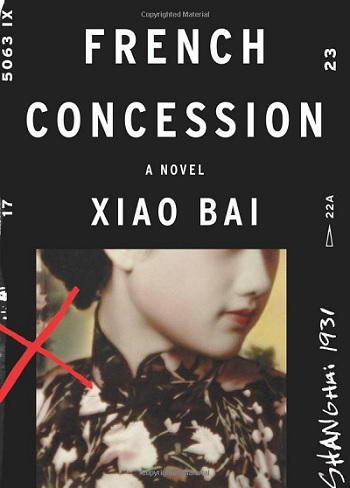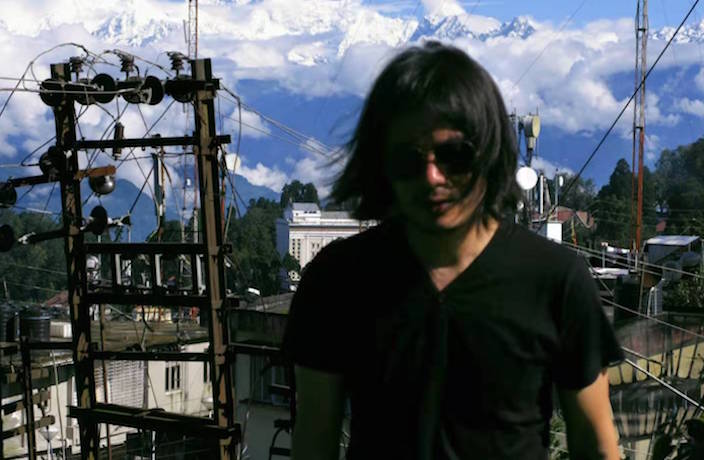There’s plenty going on in French Concession. At its best, it’s good fun in a well-drawn concession-era Shanghai that offers a snapshot of a time and place. Unfortunately, the plot gets muddled. It’s a pity, because award-winning author Xiao Bai has some success in adding depth to our understanding of the era.
We open on a boat from Hong Kong arriving in Shanghai in Year 20 of the Republic (1931). The KMT holds tenuous power, while the French Concession and International Concession continue to be self-governing enclaves.
On the boat is Hsueh, a half-Chinese and half-French photo journalist, his mysterious gun-toting White Russian lover Therese, and the unhappy Leng, married to a Kuomintang army officer. Just as they land, Leng’s husband is assassinated and Leng vanishes.
 The set-up is intriguing, but unfortunately the energy is not maintained. Hsueh becomes involved in the search for Leng, who has gone into hiding under the command of her cell leader, Ko Ya-Min.
The set-up is intriguing, but unfortunately the energy is not maintained. Hsueh becomes involved in the search for Leng, who has gone into hiding under the command of her cell leader, Ko Ya-Min.
Ko is a disciplined leader who begins to go full anarchist, willing to sacrifice anyone in his way. Therese turns out to be an arms dealer, and Ko has an eye on a mysterious new type of gun, so novel that there is no Chinese word for it yet.
Hsueh seduces Leng, both protectively and cynically, and for him the contrast between her and the worldly Therese is intense. Everything comes to a head on race day at Shanghai Race Club, home to present day People’s Park.
Books by Westerners set in this period often have a problem with their Chinese characters - with the women over-exotic and the men conforming to the cliché of the Chinese cipher. But here, while Hsueh, Therese, Leng and Ko are hardly paragons of realism, we buy them as characters with independent wishes and quirks of spirit.
In this novel, it’s the foreigners who are less plausible. With the exception of Lieutenant Sarly, a Frenchman in the Concession police force, the sketches of smug adulterers, ne’er-do-wells and adventurers aren’t overly convincing.
More importantly, while the plot is actually quite straightforward, Xiao makes it too convoluted. Characters blur, the prose is often turgid and there are plenty of scenes that simply don’t need to be in this book.
While we like the way the author gives us a Shanghai that runs on sex and violence, the actual sex scenes are repetitive and at times cringeworthy. The biggest problem is that we were never made to care what happened to any of the characters – they never became real to us.
However, there’s plenty of good to be found here, particularly in the depiction of the city. This incredibly international version of Shanghai is on the way out, with limited conflict with Japan – which the foreigners watch like sport from their protected enclaves – already beginning, prefiguring all-out war and the 1937 fall of Shanghai.
We see the huge range of nationalities and types, with racing, hunting, dance halls and movie theaters, as well as poverty, theft and violence. The movie business and a famous actress even get to play a part in the denouement, which is rather fun.
The complacent sense of superiority that allows Concession administrators to rename the streets of a Chinese city – “Who cares what they call it? Once we give it a name, it’s ours” – is wittily shown, and makes the teeth grind.
The book shines in interesting, often farcical details of the odd state of Shanghai governance at the time. For instance, a robbery plan hinges on the fact that cars drive on different sides of the road inside and outside the French Concession, which we never knew before.
Another example is Chinese participation in the First World War. This is incredibly under documented, with tens of thousands of men part of the French war effort. It’s great that it’s part of the plot here, though in the form of a massive coincidence: Sarly fought in the trenches with Hsueh’s father, which allows them to form a bond.
And then there’s the kind of detail that doesn’t have much to do with anything, but which we’re glad the author shoehorned in:
“The Russians had complained that tea tasted different when it was shipped in by train, having gotten used to tea saturated with the sweat of camels carrying merchants across the Gobi Desert. Wily Chinese merchants consequently began soaking their sacks of tea leaves in camel urine for a few days before delivering it.”
This is an honest effort that needed better editing. Narratively speaking, it falls apart. But there’s plenty to like as well, and concession-era Shanghai remains an endlessly fertile setting.
> Nov 5, noon, RMB120. M on the Bund, tickets.
> French Concession is available on Amazon.
> Check out our full preview of the Shanghai International Literary Festival and our festival related features.






















0 User Comments